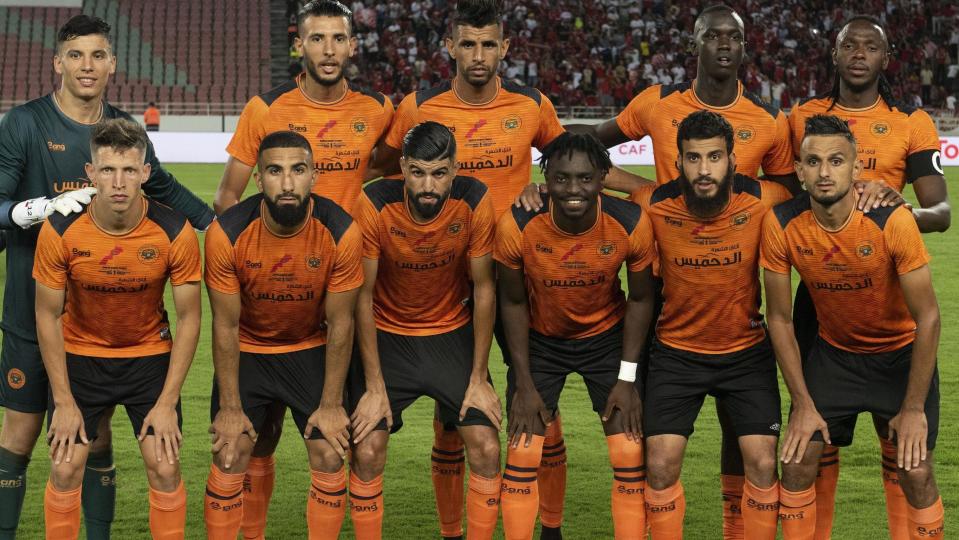Moroccan club given 3-0 win despite refusing to play

Moroccan side Renaissance Berkane have been awarded a 3-0 win over USM Alger in the first leg of their Caf Confederation Cup semi-final despite refusing to play after their kit was confiscated by Algerian customs officials.
The shirt Berkane intended to wear features an extended map of Morocco which includes the disputed territory of Western Sahara.
Algeria sees the map as a political provocation and officials seized the kit when Berkane arrived in the country last Friday.
In Sunday's aborted first leg, hosts USM Alger took to the field ahead of kick-off but the visitors remained in their dressing room and the match was called off.
Berkane have used the same jersey throughout this season's competition - as well as a similar design in previous continental campaigns.
The Confederation of African Football's interclub competitions committee decided to award a victory to Berkane and referred the case to a disciplinary commission for possible additional sanctions.
When asked for clarification on the decision, a Caf spokesperson told BBC Sport Africa the matter had been dealt with "by competent structures that are independent of the administration" of the governing body.
"Caf, at both administrative and leadership level, does not have a position here," the official added.
The second leg of the semi-final is set to be held in Berkane on Sunday.
USM Alger are the holders of the Confederation Cup, while Berkane lifted the trophy in 2020 and 2022.
Frosty neighbours
Tensions between Algeria and Morocco have been strained for many years, with Algeria severing diplomatic ties in 2021.
The political spat caused Morocco to pull out of last year's African Nations Championship, which was hosted in Algeria, after being denied permission to fly direct from Rabat.
Morocco laid claim to Western Sahara in 1957, when it was still under Spanish colonial rule, and then annexed the territory in 1975.
Sparsely populated but with phosphate reserves and rich fishing grounds, it has been the subject of a long-running territorial dispute between Morocco and its indigenous Sahrawi people, led by the Polisario Front.
The Polisario Front declared the Sahrawi Arab Democratic Republic, with a government in exile in Algeria, in 1976.
A 16-year-long insurgency ended with a UN-brokered truce in 1991.

